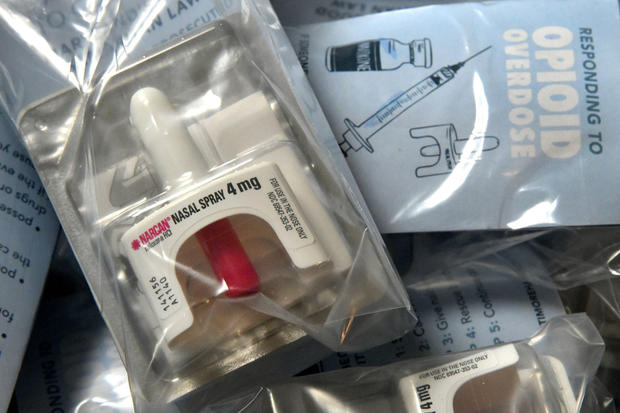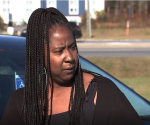FDA takes steps to authorize some overdose-reversing medicines for over-the-counter sale
[ad_1]
The U.S. Food and Drug Administration has issued a notice that could help increase access to overdose-reversing naloxone drug products without the need for a prescription, paving the way to make more of them available for over-the-counter use.
Naloxone is a medication that blocks opiate receptors in the nervous system and rapidly reverses opioid overdoses when given to an overdosing person in a timely manner. In 2021, more than 107,000 Americans died of an overdose, according to provisional data from the Centers for Disease Control and Prevention. About 75% of those overdoses were related to opioids, including heroin and fentanyl.
“Today’s action supports our efforts to combat the opioid overdose crisis by helping expand access to naloxone,” said FDA Commissioner Robert M. Califf, M.D., in a Tuesday press release announcing the notice. “The agency will keep overdose prevention and reduction in substance use disorders as a key priority and area of intense strategic focus for action as rapidly as possible.”
Naloxone is available in all 50 states, and, according to the CDC, “many states have laws that allow pharmacists to dispense naloxone without a prescription.” Community-based programs and syringe exchange services may also distribute naloxone.
The notice issued by the FDA, known as a Federal Register notice, aims to change some naloxone drug products from prescription status to nonprescription status, in addition to developing and approving new products. The notice includes a preliminary assessment stating that certain naloxone products, both nasal and injectable, may be approvable as “safe and effective for nonprescription use.”
While the assessment is a step forward, it is not a final determination that certain naloxone products are safe and effective for nonprescription use, and it does not mandate that naloxone products immediately be made available for over-the-counter purchase. The final decision will be made by the FDA, based on additional data that would usually be submitted to the agency in an application for a proposed nonprescription naloxone product.
This is just one of many steps that the FDA and other public health agencies have taken in recent years to combat the nation’s overdose crisis. The FDA has established the FDA Overdose Prevention Framework, which aims to take “impactful, creative actions to prevent drug overdoses and reduce deaths.”
In addition to the FDA’s push to make naloxone more accessible nationwide, the CDC has spoken in support of testing strips, a harm reduction tool that lets people who use drugs check for the presence of fentanyl in their substances. Fentanyl was present in more than 71,000 overdose deaths in 2021, according to the CDC’s provisional data.
Nationwide, other solutions to reduce overdose deaths are being tested at the state and local levels. In late 2021, New York City opened the country’s first legal supervised injection site, where people who use drugs can do so in a clean environment with medical staff on hand to administer naloxone or other medications if necessary. Similar sites have been considered in Colorado and Massachusetts. California Governor Gavin Newsom recently vetoed a similar effort in his state.
[ad_2]
Source link











